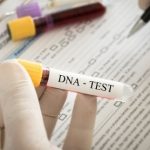While on a climbing expedition to Mt. Kilimanjaro in 2001, Sacramento State biological science professor Ruth Ballard and a Graduate Student got the idea to create a Tanzanian DNA database based on the fact that there were still many tribes with unstudied DNA markers. When Ballard approached the Tanzanian government for permission, they asked her to develop a database for the entire country that would help establish and resolve paternity issues and crimes like rape, murder and theft.
“It was a bigger project than I first imagined,” Ballard said. “The government wanted me to leave their country a legacy. We would go out on ’saliva safaris’ in a great, big vehicle for the day,” Ballard said. “We took over 1000 samples from many different tribes.”
According to the article in The State Hornet:
“Due to increasing industrial growth, many Tanzanian men have moved to other cities to find jobs. In the process, most have left their wives and children behind,” Ballard said. “These women and their children are left in abject poverty and are desperate for the ability to force the men to pay for their kids. It’s a bad situation…the women want it solved.”
Ballard, along with agencies that help women and children rise above poverty, is working on trying to make the paternity test affordable and accessible to all women.
If the government enforces the paternity law in a stricter manner, the goal of making the test more readily available for women will be possible.
The team’s next goal involves building a new forensics laboratory in Tanzania so Tanzanian researchers can update their database independently without the need for outside help. The database will play a huge role in helping Tanzanian people with their paternity issues, Ballard said.
Professor Ballard has announced that the Tanzanian database will be featured in the Journal of Forensic Sciences in January.




